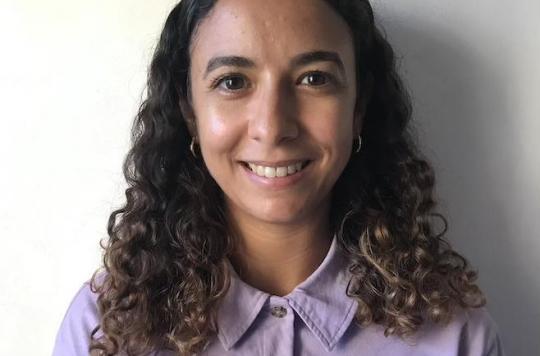This Thursday, the National Assembly adopted a resolution which recognizes people suffering from prolonged symptoms of Covid-19 but the disease is still not supported by the health system. Yousra Gabr is a general practitioner in Paris and takes care of several Covid long patients.

Friday, February 12, the High Authority for Health (HAS) for the first time issued recommendations for the management of long Covid. This Wednesday, the Assembly took a new step by adopting a resolution which recognizes people suffering from prolonged symptoms of Covid-19. Yousra Gabr is a general practitioner in Paris and has been following several patients with long Covid for many months.
– Why Doctor – Since when have you been taking care of patients suffering from long Covid?
Yousra Gabr – Since the start of the first wave, I have received many patients infected with the virus. A few weeks later, some of these patients complained of prolonged symptoms. I spent a lot of time listening to them on these consequences of the virus that we did not know. My patients exchanged with others during the summer and I was contacted by many other patients who felt a little lost.
– What were they complaining about?
They suffered from very intense fatigue, brain fog with trouble concentrating and difficulty finding their words. This fatigue was both physical and mental. There are then a whole host of other symptoms which are similar to an acute form of infection with a persistent cough, difficulty breathing, palpitations, tachycardia, disorders of the ENT pathways. Patients with mild forms have complained of joint and neuromuscular pain, dermatological signs, frostbite. There is a very wide range of symptoms that had to be taken care of.
– How did the care go at a time when there is little or no talk of long Covids?
There has been a lot of questioning about these symptoms that persist or new ones that appear. I tried to listen as much as possible. The patients questioned themselves a lot and inquired on their side. I prescribed additional examinations by symptoms and targeted organs before referring patients to specialists for further assessment to try to find the causes of these symptoms. I noticed that these symptoms evolve a lot in the form of relapses over a more or less long duration and with a more or less variable intensity. The follow-up must really be done over the long term and you have to adapt day by day.
– Almost a year after the first wave, what have you noticed about the evolution of long Covid?
Even if we only have a short year of hindsight, I notice a positive evolution in my patients. It is very slow and requires long-term care. Over time, I observe a decrease in relapses and some patients see certain symptoms disappear. I take tweezers saying this because we do not know enough about the evolution of the disease. We do not know its average duration. Studies are underway to provide us with more information.
– Is there a particular profile of patients who develop long Covid?
From what I observe in my patients who suffer from long Covid, there are very few who suffered from a severe form initially. There are many young people who were in good health before the infectious episode and in whom there were no factors to predict that it was going to evolve like this. We are not able to predict when they have acute forms if they will have sequelae and symptoms that persist or new ones that appear. At first, it was thought that the patients at risk were those who ended up in the intensive care unit and who suffered from serious lung damage. With the hindsight that we have today, we see that this is not the case. I hope that we will soon be able to find explanatory factors for these long Covids.
– After the recommendations made by the High Authority for Health last Friday, do you feel you have the necessary tools to take care of patients?
These recommendations are a good start. It is important that this disease be recognized. It took almost a year to set it up, but now it’s here. Initially, it is important to guide the entire medical world because many doctors are now aware of this disease and this helps to avoid the medical wandering that some patients experience. It is positive to have this awareness and this guide. Afterwards, it will have to be improved with the new knowledge that we will have.
I do not consider that I currently have all the tools necessary to take care of patients and I hope that this will be put in place gradually. In the meantime, we have designed our own tools, but thanks to the questionnaires that will be put in place, it will be simpler. The difficulty is to properly address the patient in the right care sector and to have the right advice from specialists and this is not yet well established. The ideal would be to create support channels in hospitals with multidisciplinary advice to allow comprehensive patient care. This access must be simplified and there are certain regions of France where it is complicated for patients.
– What are your recommendations for patients who suffer from the persistence of their symptoms?
The first thing is to consult your doctor who knows him well and who can intervene first. Then, it is necessary to make an overall assessment of the symptoms to be referred quickly to the appropriate specialists. Psychological support should also be offered to patients who often need it. It is good that we are talking about these patients who need to be recognized. They should not hesitate to consult if 4 to 5 weeks after their infection, they still have symptoms because a large majority of them do not understand what is happening to them and do not have the reflex to consult their doctor.

.















